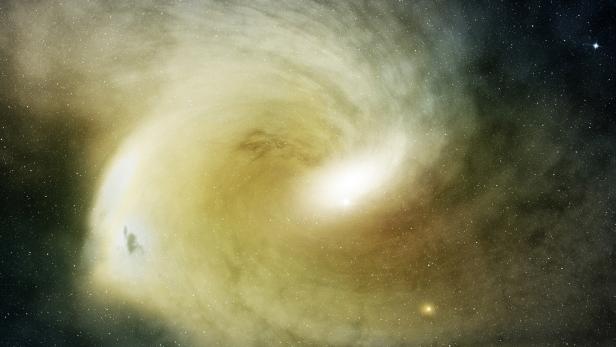Does Science Suggest the Existence of God?
ABSOLUTELY. Contrary to athiest argument, God and science are not mutually inclusive. They don't want to admit it, but science both predicts, confirms and demands that there be a God.
Indeed, per the first principles of logic, mathematics and ontology, science necessarily proceeds from the imperatives of eternalism and sufficient causation. Further, sans God, there is no reliable ontological foundation for science, let alone for the first principles of logic and mathematics proper.
Atheistism is hilariously stupid.
Indeed, that is so silly. Indeed, you make unsubstantiated assertions here, sans reasoning, sans evidence presented to support them.
Indeed, there are no first principles of logic, mathematics and ontology which support supernaturalism. Indeed, nothing in any of the sciences addresses supernaturalism.
"Every effect has a cause." This is an empirical fact of the universe. From this we are forced to conclude that the causal chain is infinite, since any "beginning" would violate this axiom.
The attempt by supernaturalists ie: “
the gods did it’ists”, to get around their appeals to supernaturalism is the qualification that, no, the proper formulation should be that “everything
that has a beginning has a cause.” Thus they hope to exempt their respective eternal gods from requiring a cause by asserting that they always existed and had no beginning… because they say so.
But this is merely an assertion. We certainly have no evidence for it, and the agendum behind the alteration is driven by circular reasoning, i.e. it is an attempt to force the argument to conform to the desired outcome rather than allowing the outcome to flow naturally from the premises.
We
can empirically state that “every effect has a cause.” But we have the same level of empirical evidence that “everything that exists has a beginning.” We have no such evidence for
anything that is eternal.
An infinite causal chain satisfies all these conditions, requiring no assumption of an entity for which we have no evidence (i.e. an eternal entity). The chain is itself eternal, but it is not an entity
per se. It is the sum of an infinite number of discrete ephemeral entities, all of which have a beginning, and all of which have a preceding cause.
This is why the question “so what created the gods” is not a glib one. It is the only question about one or more “creators of the universe gods” than can be justified by reason and evidence. To deny that the gods had a beginning is fine apologetics. But it is not good logic.
We have vast amounts of observational evidence that both the above axioms are true, while we have zero observational evidence of any violations of or exceptions to them.
Looking as far back in time as we are capable of observing (i.e. billions of light years across space which is also billions of years into the past) we see that this is true as far back as we are able to observe. So the chain of causality is at the least as old as the observable universe.
Hyper-religion'ism is endless appeals to magical, supernatural gods absent any evidence.

